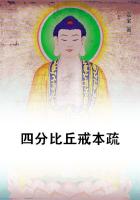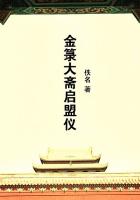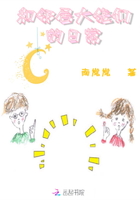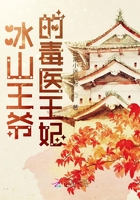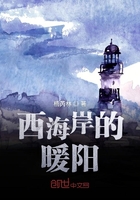Still kneeling, with her face between her hands, Domini began to think and pray. The memory of her petition to Notre Dame de la Garde came back to her. Before she knew Africa she had prayed for men wandering, and perhaps unhappy, there, for men whom she would probably never see again, would never know. And now that she was growing familiar with this land, divined something of its wonders and its dangers, she prayed for a man in it whom she did not know, who was very near to her ****** a sacrifice of his prejudices, perhaps of his fears, at her desire. She prayed for Androvsky without words, ****** of her feelings of gratitude to him a prayer, and presently, in the darkness framed by her hands, she seemed to see Liberty once more, as in the shadows of the dancing-house, standing beside a man who prayed far out in the glory of the desert. The storm, spoken of by the Diviner, did not always rage. It was stilled to hear his prayer. And the darkness had fled, and the light drew near to listen. She pressed her face more strongly against her hands, and began to think more definitely.
Was this interview with the priest the first step taken by Androvsky towards the gift the desert held for him?
He must surely be a man who hated religion, or thought he hated it.
Perhaps he looked upon it as a chain, instead of as the hammer that strikes away the fetters from the slave.
Yet he had worn a crucifix.
She lifted her head, put her hand into her breast, and drew out the crucifix. What was its history? She wondered as she looked at it. Had someone who loved him given it to him, someone, perhaps, who grieved at his hatred of holiness, and who fancied that this very humble symbol might one day, as the humble symbols sometimes do, prove itself a little guide towards shining truth? Had a woman given it to him?
She laid the cross down on the edge of the /prie-dieu/.
There was red fire gleaming now on the windows of the church. She realised the pageant that was marching up the west, the passion of the world as well as the purity which lay beyond the world. Her mind was disturbed. She glanced from the red radiance on the glass to the dull brown wood of the cross. Blood and agony had made it the mystical symbol that it was--blood and agony.
She had something to think out. That burden was still upon her mind, and now again she felt its weight, a weight that her interview with the priest had not lifted. For she had not been able to be quite frank with the priest. Something had held her back from absolute sincerity, and so he had not spoken quite plainly all that was in his mind. His words had been a little vague, yet she had understood the meaning that lay behind them.
Really, he had warned her against Androvsky. There were two men of very different types. One was unworldly as a child. The other knew the world. Neither of them had any acquaintance with Androvsky's history, and both had warned her. It was instinct then that had spoken in them, telling them that he was a man to be shunned, perhaps feared. And her own instinct? What had it said? What did it say?
For a long time she remained in the church. But she could not think clearly, reason calmly, or even pray passionately. For a vagueness had come into her mind like the vagueness of twilight that filled the space beneath the starry roof, softening the crudeness of the ornaments, the garish colours of the plaster saints. It seemed to her that her thoughts and feelings lost their outlines, that she watched them fading like the shrouded forms of Arabs fading in the tunnels of Mimosa. But as they vanished surely they whispered, "That which is written is written."
The mosques of Islam echoed these words, and surely this little church that bravely stood among them.
"That which is written is written."
Domini rose from her knees, hid the wooden cross once more in her breast, and went out into the evening.
As she left the church door something occurred which struck the vagueness from her. She came upon Androvsky and the priest. They were standing together at the latter's gate, which he was in the act of opening to an accompaniment of joyous barking from Bous-Bous. Both men looked strongly expressive, as if both had been ****** an effort of some kind. She stopped in the twilight to speak to them.
"Monsieur Androvsky has kindly been paying me a visit," said Father Roubier.
"I am glad," Domini said. "We ought all to be friends here."
There was a perceptible pause. Then Androvsky lifted his hat.
"Good-evening, Madame," he said. "Good-evening, Father." And he walked away quickly.
The priest looked after him and sighed profoundly.
"Oh, Madame!" he exclaimed, as if impelled to liberate his mind to someone, "what is the matter with that man? What is the matter?"
He stared fixedly into the twilight after Androvsky's retreating form.
"With Monsieur Androvsky?"
She spoke quietly, but her mind was full of apprehension, and she looked searchingly at the priest.
"Yes. What can it be?"
"But--I don't understand."
"Why did he come to see me?"
"I asked him to come."
She blurted out the words without knowing why, only feeling that she must speak the truth.
"You asked him!"
"Yes. I wanted you to be friends--and I thought perhaps you might----"
"Yes?"
"I wanted you to be friends." She repeated it almost stubbornly.
"I have never before felt so ill at ease with any human being," exclaimed the priest with tense excitement. "And yet I could not let him go. Whenever he was about to leave me I was impelled to press him to remain. We spoke of the most ordinary things, and all the time it was as if we were in a great tragedy. What is he? What can he be?" (He still looked down the road.)
"I don't know. I know nothing. He is a man travelling, as other men travel."
"Oh, no!"
"What do you mean, Father?"
"I mean that other travellers are not like this man."
He leaned his thin hands heavily on the gate, and she saw, by the expression of his eyes, that he was going to say something startling.


